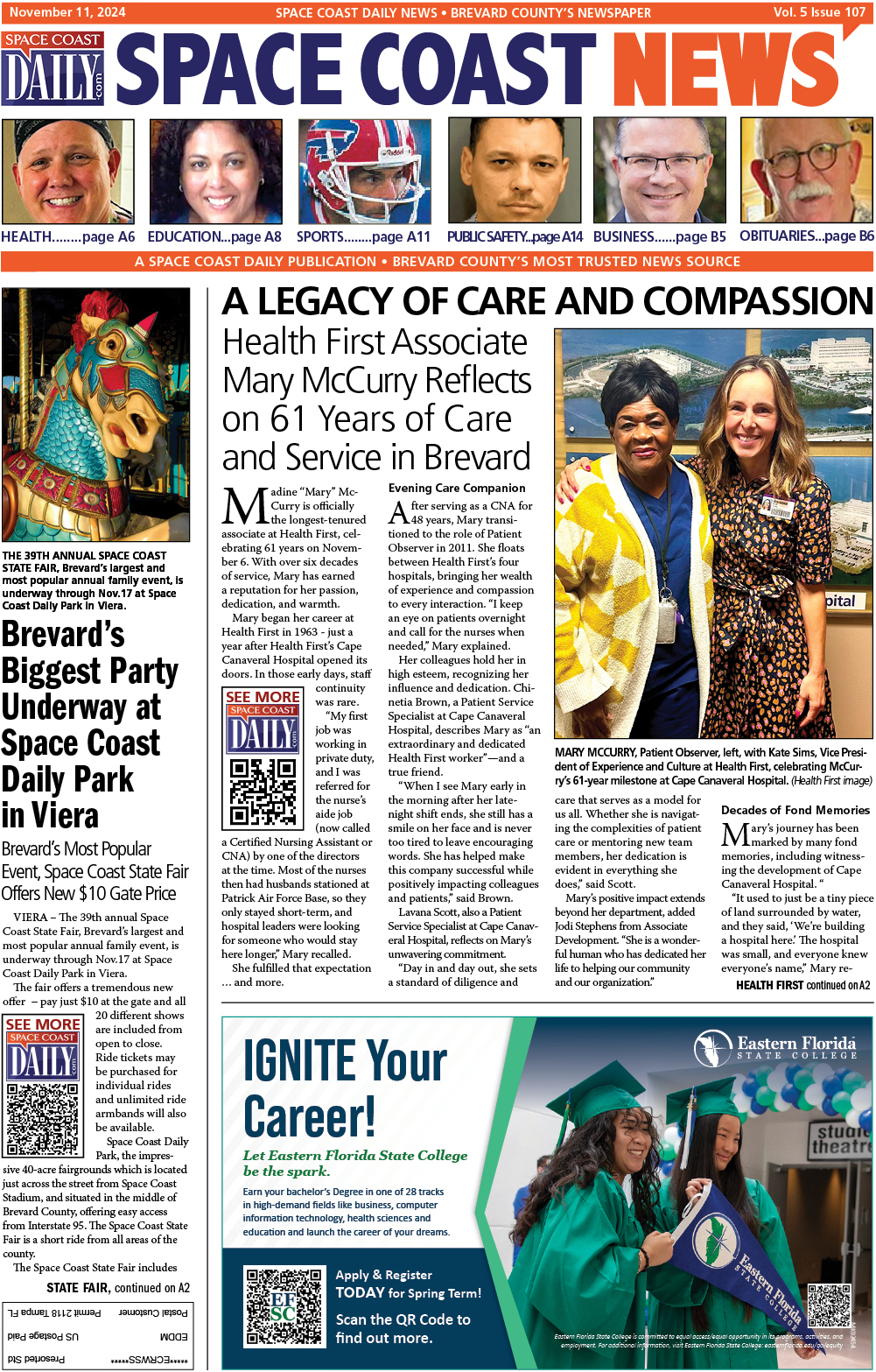Everything You Need to Know About Auto Repair Shop Insurance
By Space Coast Daily // June 14, 2022

Auto repair shops come in many varieties. They can be a dealership, a specialty auto repair shop, an independently owned auto repair business, or even an online auto mechanic business.
But all of them have one thing in common: they all face the constant risk of getting sued because of an unforeseen accident. And these accidents can happen to anyone associated with them.
For auto shop employees, these accidents can be injuries during car repair, third-party bodily injuries, trauma injuries, or even slip-and-fall injuries. As for customers, they can be customer injury or accidental damage to the customer’s car.
Other than these, an auto repair shop owner can also be faced with libel/slander lawsuits, business interruption incidents, vehicle theft, and vandalism.
A single accident or lawsuit can extensively harm the financial health of automotive repair shops. For this reason, it is important for auto business owners to invest in quality garage insurance.
What Is Automotive Repair Shop Insurance?
An auto repair shop insurance protects an auto service shop against a number of liabilities from faulty work to managing risks.
Which Businesses Can Benefit From Mechanic Insurance?
If you conduct your business on a physical site that includes a garage, or a warehouse that you use to keep or repair automobiles, then you can benefit from business insurance.
The following are examples of these types of businesses
■ Muffler shops
■ Tire and battery repair facilities
■ Auto dealerships
■ Transmission shops
■ Automotive repair shops
■ Tow or impound lots
■ Body shops
■ Car washes
■ Service stations
Types Of Insurance Available For Auto Repair Shops
So your small business falls under one of the above categories and you’re convinced that you need an automotive repair shop insurance before your auto maintenance shop is the one that needs maintenance.
You look up insurance for auto repair shops and what’s this? There are so many types of business insurance available and you can’t even understand the difference between each of their coverage.
That’s where we come in.
In this section, we’ve explained 10 different kinds of auto repair shop insurance, and what each of them is good for, so you don’t have to spend hours upon hours deciding on your next insurance!
General Liability Insurance
Suppose a customer walks into your auto repair shop, trips over a random wrench on the floor, and breaks his teeth. Now he wants to sue you for it.
A situation like this calls for general liability insurance, which covers ordinary third-party liability complaints.
Your business needs general liability insurance if it
■ Is conducted on commercial property
■ Manages client property
■ Has close interactions with clients
■ Has a publically accessible location
General liability insurance can help in protection from unintentional copyright violation, protection against libel or slander accusations, and legal defense against advertising-related lawsuits and more ordinary lawsuits.
Its cost depends on a few factors such as
■ Location of your auto repair business
■ The number of risk factors
■ The extent of the insurance coverage
■ The number of employees
Professional Liability Insurance
If you are replacing the engine of a customer’s car, and while going in the new one slides off the hoist and smashes to the floor, you are suddenly looking at a negative invoice!
Professional Liability Insurance, or Mechanics Errors and Omissions Coverage, is garage insurance that covers erroneous work by a technician due to negligence, or vehicular damage that results in defective parts.
However, it is important to note that this auto mechanic insurance coverage doesn’t include cyber liability, criminal prosecution, or all types of civil legal liability. Therefore to avoid any unlucky accidents, it is a good idea to go over coverage terms and conditions provided by your insurance company.
Loss of Income Insurance
You wake up well-rested on a curiously clear morning, all ready to go to your flourishing auto repair shop when suddenly you hear the distant roar of thunder.
In a few moments, pitch-black clouds gather in the moments-ago-bright sky, and torrents of rain start pouring down, while you stare in dismay at the now-flooded road you were just about to set out on, your dreams of making a lot of money that day, going down the drain.
This type of auto mechanic insurance, also known as business income insurance or lost income insurance, pays for the revenue an auto repair shop owner may lose out on due to a work-related injury, a disability, or business interruption.
It requires a few terms to be understood
■ Actual Loss Sustained: This is the financial reimbursement you get from the insurance firm to offset your company’s lost revenue.
■ Business income: This covers any revenue generated by routine commercial services.
■ Waiting Period: The period of time that must elapse after a covered cause of damage until business income coverage starts.
■ Period of Restoration: The duration of time that your company is unable to function following a loss.

Garage Keepers Insurance
Garage keepers coverage is a kind of mechanic insurance for professional liability risks that arise from damage either to a client’s vehicle, or automotive equipment that has been left in the dealer’s custody.
Garage keepers insurance provides the following types of protection to a repair shop
■ Direct Primary: This coverage takes care of your customer’s vehicles in the event that it is stolen or damaged by an act of nature. This coverage applies regardless of who is responsible for the loss.
■ Direct Excess: This coverage is similar to Direct Primary except that it covers the extra cost that the garage owner’s initial insurance doesn’t cover.
■ Legal Liability: This is the most expensive coverage in garage keepers insurance. It protects the owner against losses caused by the carelessness of its auto mechanics. For example, this coverage would apply if an automobile was damaged by a technician during maintenance.
This is the most important insurance for a garage, as any insurance agent will tell you!
Cyber Liability Insurance
If your auto repair shop operates online or uses the cloud to store client information, then this insurance is a must-have for you.
Cyber Liability Insurance protects your business against cyber security issues and data breaches that involve confidential information such as account numbers, credit card numbers and social security numbers, etc.
Cyber Insurance covers
■ Business interruption
■ Crisis management expenses
■ Betterment
■ Cyber extortion
■ Regulatory defense fines
■ Forensic investigations
■ Litigation expenses
Help typically provided by cyber insurance is:
■ Recovering lost or corrupted data
■ Restoring impacted customers’ personal IDs
■ Informing consumers of a data breach
■ Computer system repair
Tow Truck Insurance
This is a type of mechanic insurance that provides coverage to protect automobiles you tow, both when they are on your truck and when they are at your tow yard.
A tow truck insurance can be of the following types
■ Collision insurance: It pays for maintenance if your tow truck gets in an accident
■ Garage keepers legal insurance: It pays for damage to a customer’s vehicle when it is in your custody
■ On-hook coverage: It pays for physical damage to a customer’s vehicle when it is hooked up to your tow truck
■ Auto insurance: It pays for legal fees and expenditures incurred as a result of bodily injury or property damage if the garage owner is responsible for the accident.
The kinds of businesses that can benefit from tow truck insurance are
■ Auto club contractors
■ Auto body shops
■ Auto mechanical repair shops
■ Roadside service providers
■ The auto salvage and auction haulers
Workers Compensation Insurance
Workers’ compensation is a type of employer health insurance that pays compensation to employees who get injured or handicapped because of their job.
The benefits provided by worker’s compensation are of two types
Reimbursement of Medical Costs and Survivor Benefits
Most workers’ compensation programs only cover medical expenses incurred as a direct consequence of working.
For example, if one of your technicians drops a wrench on his head while working under a car, he is eligible for worker’s compensation. But he can not claim it as an employee injury if he got into an accident while driving to the auto repair shop.
Salary Replacement
A worker’s compensation wage replacement is often less than the employee’s entire salary. It can be a maximum of two-thirds of their total salary.
Commercial Auto Insurance
In the automotive industry, technicians usually test drive a vehicle after fixing it to make sure that the issue is resolved. But it is possible for a test drive to go wrong due to an accident or even the vehicle falling apart.
Commercial auto insurance solutions cover legal expenses, property damage costs and ongoing medical care expenses in the case of a business vehicle getting into an accident.
Property and Equipment Insurance
This sort of small business insurance protects you against loss or damage to your business property or equipment.
Property equipment’s insurance is applicable in the following situations
■ Natural disasters such as lightning, earthquakes, etc
■ Civil commotion such as a riot
■ An unforeseen incident such as water leakage etc
Commercial Property Insurance
This type of garage insurance covers damage to commercial property. It is usually combined with business liability insurance to form a business owner’s policy.
The factors which determine the cost of commercial property insurance are
■ The kind of construction material used in your building
■ The number of employees in your garage
■ The location of your business
■ The protection systems in your auto mechanic shop such as sprinklers, fire alarms, etc
Business Interruption Insurance
Business interruption insurance covers income lost by small businesses as a result of a disaster.
The expenses covered by this type of garage insurance include
■ Payroll
■ Taxes
■ Profits
■ Commission and training cost
■ Operating expenses
■ Loan payments
■ Costs incurred in moving to a temporary location












